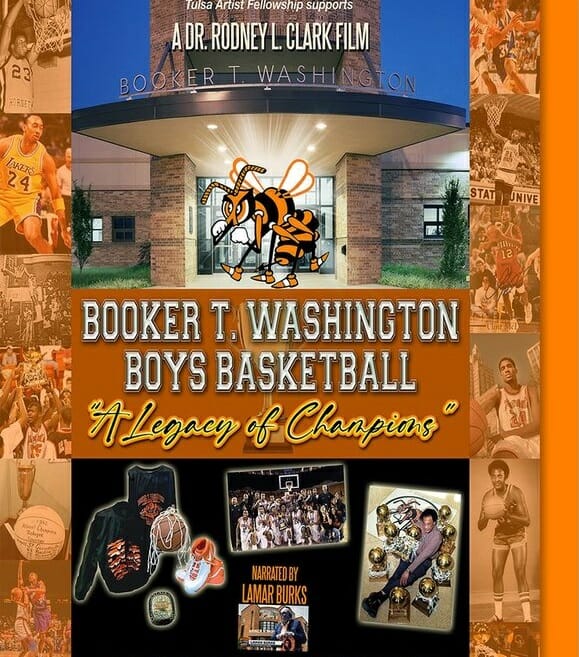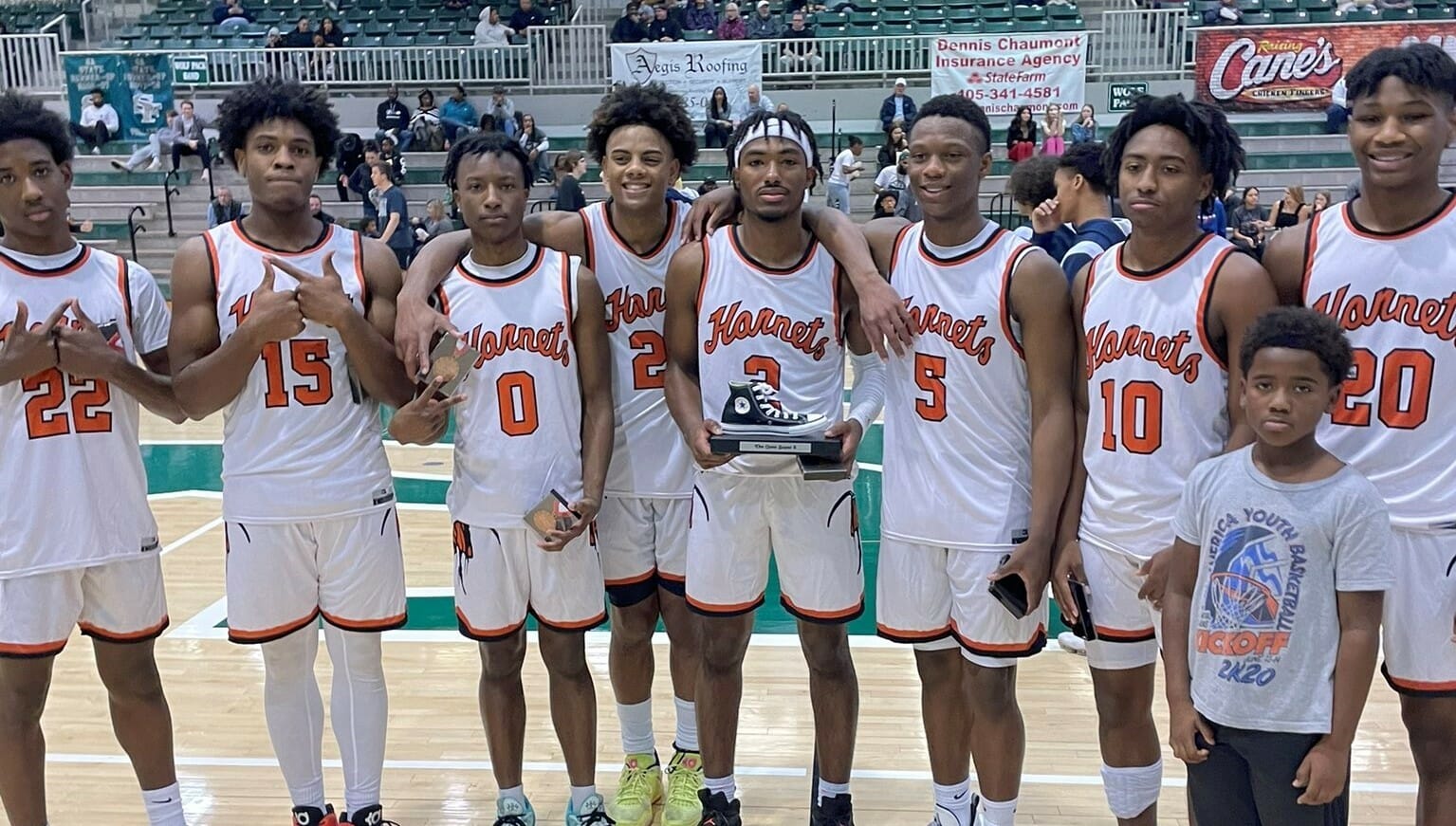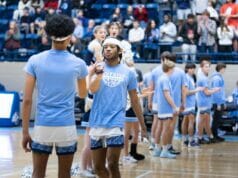
Over the past 102 years, Booker T. Washington High School in Tulsa has built an impressive tradition of athletic excellence. That tradition is on full display with the recent release of the documentary, “Booker T. Washington Boys Basketball: A Legacy of Champions.”
The film was made available for viewing recently at a free screening at the Circle Cinema in Tulsa. The event, which was presented as part of Black History Month with support from Tulsa Artist Fellowship, included a Q&A with director Dr. Rodney L. Clark.
The film was written, produced and narrated by Hornet historian Lamar Burks. Burks is also the founder and curator of the school’s athletic museum. Music for the film was directed by former BTW and University of Oklahoma football great Rocky Bright.
Booker T. Washington is traditionally considered one of the top high school basketball programs in the Midwest, thanks to 16 OSSAA state championships and 19 OIAA state titles. Many Hornet players have gone on to have successful college and NBA careers, including Wayman Tisdale, John Starks and Richard Dumas.
Current Booker T. Washington coach Eli Brown III attended the screening, along with many of his players.
“The documentary was really well done,” stated Brown, a 2000 BTW graduate. “They had some really good interviews with former coaches and former players, and some exclusive things that a lot of people didn’t know.”

One thing that might surprise Booker T. fans and alumni is that the school colors weren’t always orange and black, and the mascot wasn’t always the Hornets.
“They discovered that we used to be yellow and black and we were the Tigers,” said Brown. “As a matter of fact, the 1921 yearbook references them as the Tigers. I think that was a revelation for a lot of people, especially former Hornets and alumni. I thought that was a pretty neat aspect of it.”
The current members of the Hornet basketball team walked away with a greater appreciation for the school’s basketball tradition.
“It was affirmation for them,” Brown said. “For them to see other people and former players talk in the film, it solidified some of the things that they have been talked to about. Now they see, this is real. This is a big deal.”
“Being at the Circle Cinema and seeing all those people in there, they start to realize that this means something and is something to take pride in,” added Brown. “It was good for them to see that, and the feedback was really positive.”








